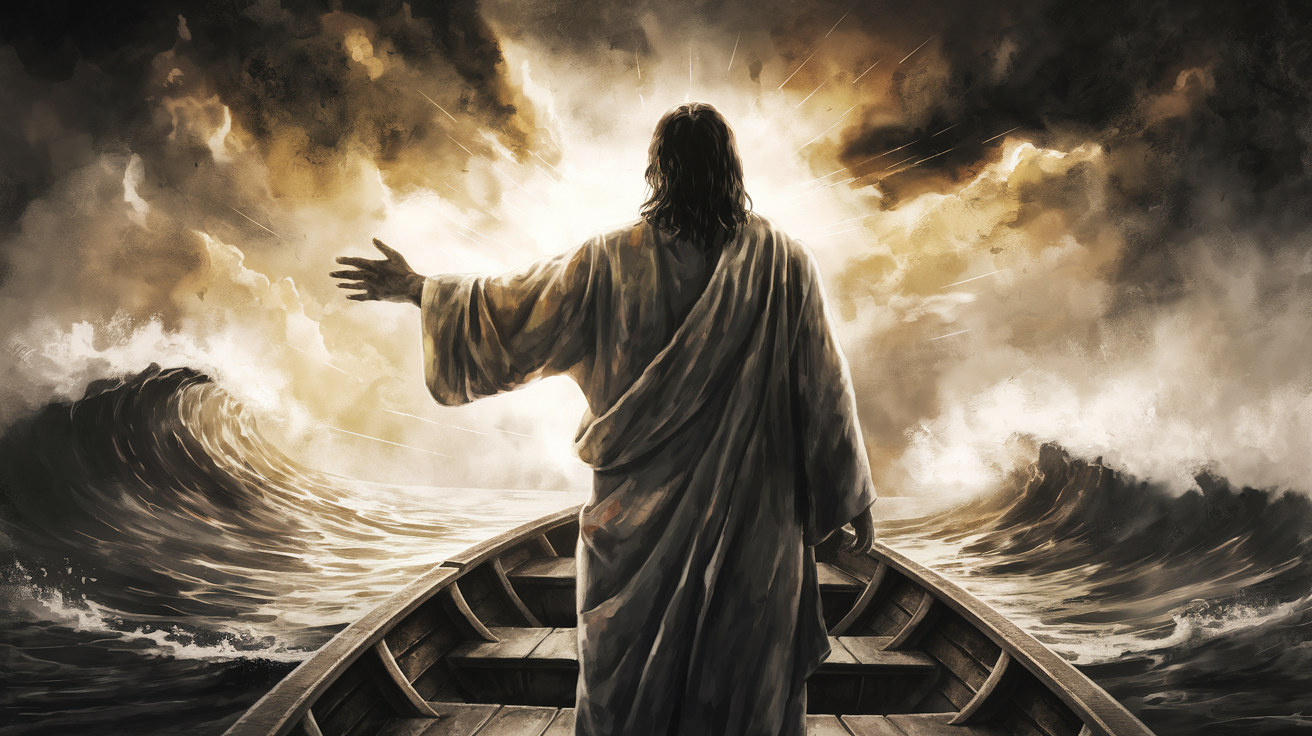Rebuke the Storm: Understanding Jesus’ Authority and the Power of Faith
In Mark 4:39, we read an incredible moment of divine authority where Jesus calms a fierce storm. As the wind and waves rage, the disciples panic, fearing for their lives. In response, Jesus simply speaks: “Peace. Be still.” And the storm ceases. But what makes this moment even more profound is the context it comes in, particularly when we take a step back to Mark 3:23.
In Mark 3:23, Jesus addresses a critical accusation from the religious leaders of His day, who suggest that He casts out demons by the power of Beelzebul (Satan). Jesus responds by saying, “How can Satan cast out Satan? If a kingdom is divided against itself, that kingdom cannot stand.” He uses this statement to make it clear that the power He exhibits is not from Satan but from God Himself. In fact, Jesus points to the truth that a kingdom divided cannot stand—if Satan were working against himself, his efforts would be futile.
This is important when we consider the storm Jesus rebukes in Mark 4:39. If a kingdom can’t be divided and stand, then it would follow that if Jesus is the one rebuking the storm, He cannot be the one who caused it. The storm itself was not sent by Him, nor was it a reflection of His will. Instead, it demonstrates that there are other forces at work in this world, forces that sometimes manifest in trials and tribulations, including natural events like storms.
Now, we must be careful here. Just because we see Jesus rebuking the storm does not mean that Satan is the cause of every calamity we face. The Bible does not provide definitive evidence that Satan caused this storm or any other. What we can gather from this passage, however, is that not everything we experience is a direct act of God. God may allow certain events to happen in our lives, but that does not mean He is the one who causes them.
Understanding the Role of God in Our Trials
When storms arise in our lives—whether they be literal or figurative—we often find ourselves crying out, “Why, God?” It’s a natural response when faced with pain, loss, or hardship. We might even blame God for allowing these things to happen. But we must remember that God’s sovereignty over all creation does not mean He causes every storm we face. God allows things to happen in our lives, but that does not equate to God orchestrating or causing every negative event we endure.
This distinction is crucial. If we blame God for everything that goes wrong, we may fall into despair, feeling as if God is against us. But if we understand that God can use all things for good—whether He causes them or simply allows them—our perspective changes. It gives us confidence to know that no matter what happens, God will work through it for our good and His glory.
Romans 8:28 reassures us of this truth: “And we know that for those who love God all things work together for good, for those who are called according to His purpose.” Even the storms we face can be used by God to refine our faith, strengthen our perseverance, and reveal His goodness in ways we cannot yet understand.
Replacing “Why” with “Help”
Instead of falling into the trap of questioning God with “Why?” when life gets difficult, we should shift our focus to “Help.” In Mark 4:39, when the storm rages and the disciples fear for their lives, they don’t demand an explanation from Jesus. They call out to Him in desperation, seeking His intervention. And He responds. When we face the storms of life, we are invited to cry out to God, not in condemnation or accusation, but in the humble recognition that He is our only hope for rescue.
Jesus’ rebuke of the storm in Mark 4 shows us that He has the power to calm the fiercest of trials. His authority over creation assures us that we can call upon Him in our darkest moments, knowing that He hears our cries and is able to respond in ways that bring peace and restoration. Our role is to trust Him, even when we don’t understand the purpose behind the storm.
Conclusion: Confidence in God’s Sovereignty
So, as we navigate the storms of life, let us remember that God is not the author of our suffering, but He is the Redeemer in the midst of it. Just as Jesus rebuked the storm, we can trust that He has authority over all that threatens us. And even when we don’t understand why we face certain challenges, we can find confidence in knowing that God can use all things for good.
Rather than demanding explanations, let us cry out in faith, trusting that God’s help will come. The storms may rage, but with Jesus in the boat, peace is always within reach.




